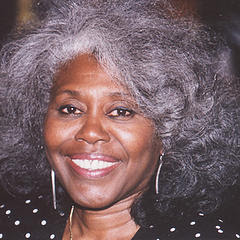
Woody King, Detroit BAM,
producer, New Federal Theatre, NYC

Marvin X
poet,playwright, essayist
c0-founder of Black Arts West
Theatre, Fillmore District and
Black House,
San Francisco
Member of New Lafayette Theatre,
Harlem, NY, 1968-69

Barbara Ann Teer,
National Black Theatre Founder
(RIP)
Poet Askia Toure
A Key Figure in BAM

Playwright Ed Bullins,
one of most prolific playwrights in
America
C0-founded Black Arts West Theatre
and Black House with Marvin X
(Black House founders included
Eldridge Cleaver, Ethna X. Wyatt
(Hurriyah Asar)

Omar Ben Hasan and Abiodun of Last Poets
Continued the poetic tradition, laid the
path for "Rap"

Haki Madhubuti (Don L. Lee) poet of
the Chicago BAM


Amina and Amiri Baraka (LeRoi Jones),
BAM founders
poet/playwright
Sonia Sanchez,
Queen of BAM

poet Nikki Giovanni, a major player
of BAM

Sun Ra, BAM Master
musician, philosopher
mythologist, poet
dramatist of the
highest order

Dr. Henry Louis Gates, Harvard Negro Intellectual in Crisis

Sometimes referred to as "the artistic sister of the Black Power Movement," the Black Arts Movement stands as the single most controversial moment in the history of African-American literature--possibly in American literature as a whole. Although it fundamentally changed American attitudes both toward the function and meaning of literature as well as the place of ethnic literature in English departments, African-American scholars as prominent as Henry Louis Gates, Jr., have deemed it the "shortest and least successful" movement in African-American cultural history.
-- "Black Creativity: On the Cutting Edge." Time (Oct. 10 1994): 74-75.
It is sometimes most difficult for outsiders, especially from academia, to understand what was essentially a grass roots artistic movement that advanced the radical consciousness of North American Africans. How can one say BAM "fundamentally changed American attitudes both toward the function and meaning of literature as well as the place of ethnic literature in English departments," and in the same breath call it the "shortest and least successful" movement in African-American cultural history. Perhaps its failure is that it did not totally liberate the black masses from domestic neo-colonialism. Will hip hop rap finish the work?
--Marvin X
No comments:
Post a Comment